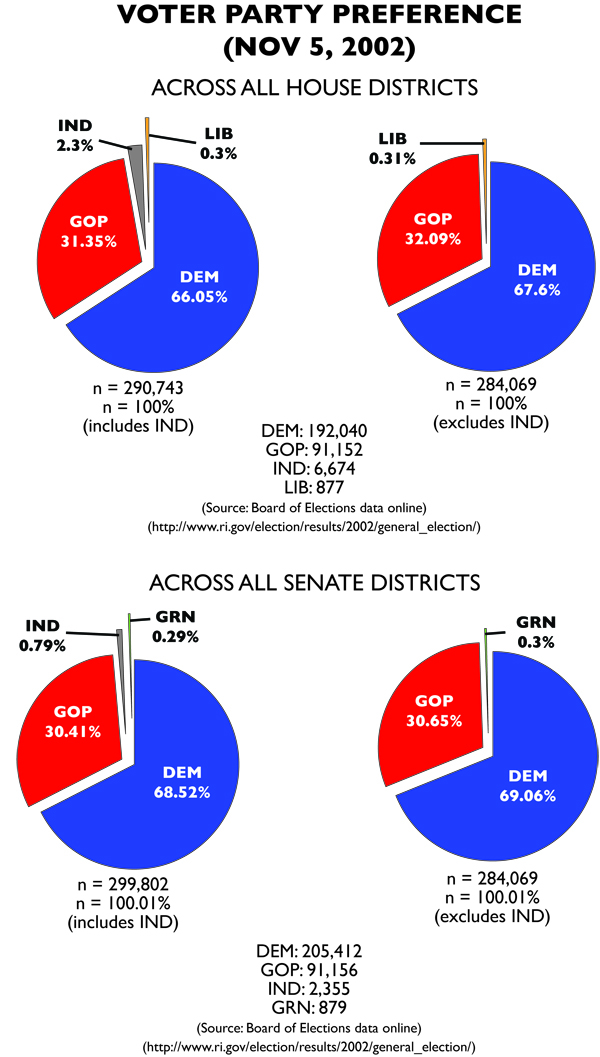
2002 was a momentous year for Rhode Island politics. State Representative David Cicilline announced he would challenge Buddy Cianci for Mayor of Providence. The capital city was also seeing a coalition of left-wing voters working to elect a young Green Party candidate David Segal to the city council. The major battle was between liberal standard-bearer former state Sen. Myrth York and conservative businessman Donald Carcieri.
In this atmosphere of change, so too was the General Assembly changing. Though its number of districts had been downsized, nearly a decade prior voters had approved an expansion of the Assembly; both chambers would practically grow by half.
The results of the election were stunning. Carcieri triumphed over York, who underperformed among Democrats. Cianci was eliminated before election day after being found guilty of racketeering conspiracy; after overcoming a primary election, Cicilline cruised to victory. Segal entered the Providence City Council as the minority leader, the sole member whose party wasn’t “Democrat”.
And in the General Assembly, the change was hard to interpret. Certainly, neither party “lost” seats. And yet, proportionally, the Republicans were stronger than they would have been in the old FPTP system. Instead of controlling a mere 14.67% of the seats in the House, they controlled 32% of the seats. In the Senate, the old way would’ve seen them earn 15.79% of the seats. The new method assigned them 30.26% of the seats.
However, the vast majority of Republican seats were from the party list, not from districts. Failure to contest as many seats meant that their candidates were more beholden to party, rather than to constituency. The Democrats had the opposite issue; their victory in the districts meant that they assigned fewer from the lists. The Democratic delegation would be mostly made up of incumbents, while the new Republicans would be mostly fresh-faced.
The Republicans claimed victory. Here was proof that Rhode Island’s corrupt system had prevented the full choice of the voters from being acknowledged. Democrats, for their part, grumbled, and went home with a slim supermajority of the General Assembly seats.
Implications
In reality, Democrats controlled roughly 85 percent of each chamber. Republicans were essentially shunted aside, even while winning slightly less than a third of the vote. So they controlled half of what they should have in the Assembly proportional to the votes they received.
In retrospect, it seems odd that the impetus for the General Assembly being shrunk was to create greater competition for seats. Mainly, because it failed to work; about a quarter of Senate seats were uncontested (10) as were a third of House seats (34).

This is Part 4 of the MMP RI series, which posits what Rhode Island’s political landscape would look like if we had switched to a mixed-member proportional representation (MMP) system in 2002. Part 3 (an explanation of MMP and an account of the methods used to create these posts) is available here. Part 5 is a look at the Election of 2004.
]]>